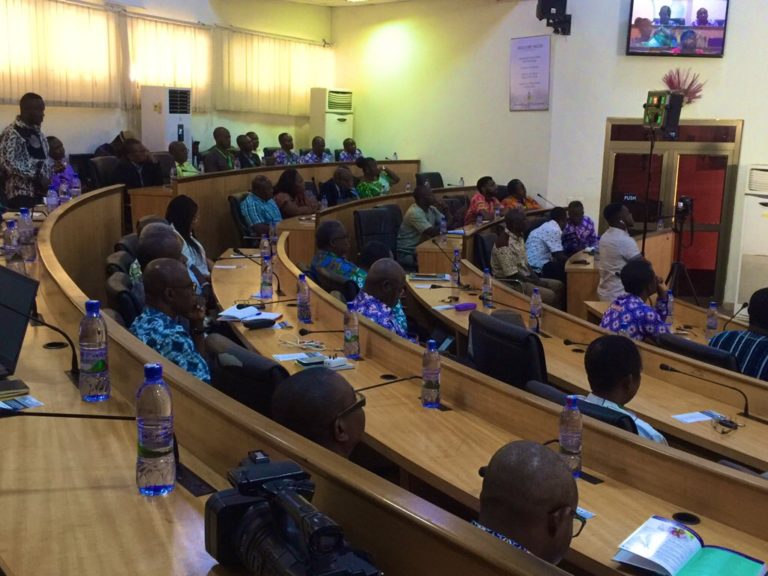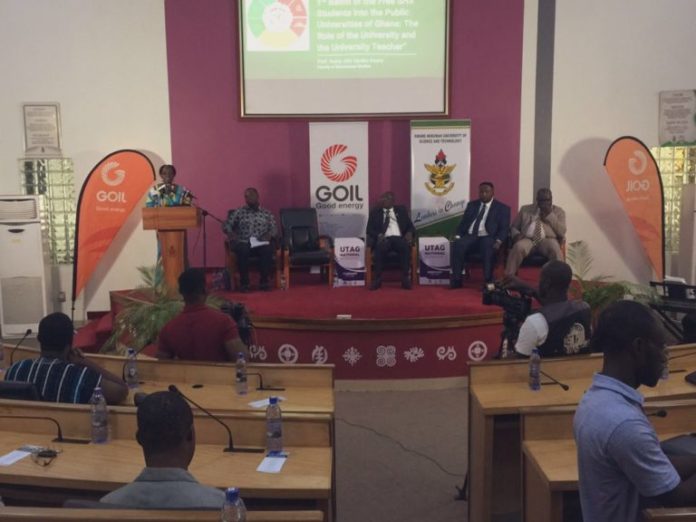|
Getting your Trinity Audio player ready...
|
The Pro-Vice Chancellor of the University of Professional Studies, Accra (UPSA) has renewed calls for a revision of the retirement age of university lecturers in Ghana from 60 to 65 years to enable the country benefit more from them.
Dr Charles Banor said the diversity in age of a university’s faculty staff contributes to productivity and richness of environment of teaching and research.
At age 60, lecturers in Ghana’s public universities reach the apex on academic maturity but are forced to retire.
Speaking at a workshop organised by the University Teachers Association of Ghana (UTAG), he said the situation could affect teaching and learning as management in these public tertiary institutions prepare to admit beneficiaries of the Free SHS program this year.

“Averagely, most lecturers attain their PhDs in their early 40s, and at this point they start rigorous academic pursuits and occupation that is span a lifetime. Most people may attain full professorship while in their mid to late 50s and some of them close to 59 and they are asked to go home. And this is when they mentor young academics and this is the time the old experienced academics are needed to maintain and improve quality in our universities”, the UPSA Pro-VC said.
Citing the 65-year retirement age of a Justice of the High Court as enshrined in Article 145(2)(b) of the 1992 Constitution, Dr Banor said same benefits could be extended to lecturers in Ghana’s public universities.
Also at the event was Professor Nana Afia Amponsaa Opoku-Asare of the Faculty of Education Studies, KNUST, who said though the Free SHS policy was going to churn out large numbers of students, not all of them would enter the universities.
She, however, said there was the need for public universities to prepare themselves adequately since it would automatically increase enrollment and workload of university administrators and lecturers.
Prof. Opoku-Asare stressed the need to increase and expand the satellite campuses of public universities to reduce pressure and workload on their main campuses.
The workshop was to highlight some of the expected challenges and roles of the universities and lecturers, as the first batch of the Free SHS beneficiaries prepares to enter the universities in September.
It was under the theme “towards receiving the first batch of the Free SHS students into public universities of Ghana: the role of the university and the university teacher”.
By Jonathan Ofori, Daily Mail GH





